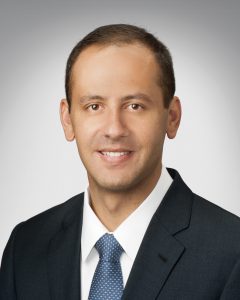A 2018 change in the policy to allocate hearts for transplantation appears to have come with a trade-off, UPMC physicians reveal today in a new analysis published in JAMA Cardiology.

Arman Kilic, M.D.
In response to surging demand for heart transplants in the U.S., an updated United Network for Organ Sharing (UNOS) transplant allocation policy was implemented two years ago to lessen the organ waiting time for thousands of patients. But while wait times were reduced, it appears to have hurt patients’ chances of survival and recovery after the surgery.
In the paper published this morning, University of Pittsburgh and UPMC researchers show that despite reductions in wait list deaths and increases in rates of transplant surgeries performed, the policy appears to have brought down the patients’ post-transplant one-year survival by nearly 5% nationwide.
“Sometimes it is difficult to achieve one goal without compromising the other,” said lead author Dr. Arman Kilic, associate director of the UPMC Advanced Heart Failure Program. While the paper does not support or criticize the policy change, it argues that its outcomes should be continually re-evaluated, he added.
The 2018 policy, revised to better reflect the urgency of each patient’s need for a transplant, succeeded in reducing the wait list mortality and promoting broader geographic sharing of available organs, the new JAMA analysis found. However, as sicker patients gained easier access to transplants, the overall patient survival dropped, and the rates of postoperative new-onset dialysis and stroke increased.
“Someone can make an argument that 92% survival before the policy change might have been too good and that we were not doing enough transplants for the high-risk patients,” Kilic said. “It remains to be determined if policymakers and key stakeholders support improved waiting list outcomes but at the expense of decreased survival after transplant.”
JAMA editors Dr. Clyde Yancy of the Northwestern University Feinberg School of Medicine and Dr. Gregg Fonarow of the David Geffen School of Medicine at University of California, Los Angeles, cite the paper’s findings in their open call for revision of the current heart reallocation policy.
“Even a modest reduction in post-transplant outcomes … cuts short the hope of renewed quality and longevity of life in heart transplant recipients,” they write in their accompanying editorial. “We support policy change and process improvement—it is how we practice better medicine—but we must be certain that our changes are for the good and cause no undue harm.”








